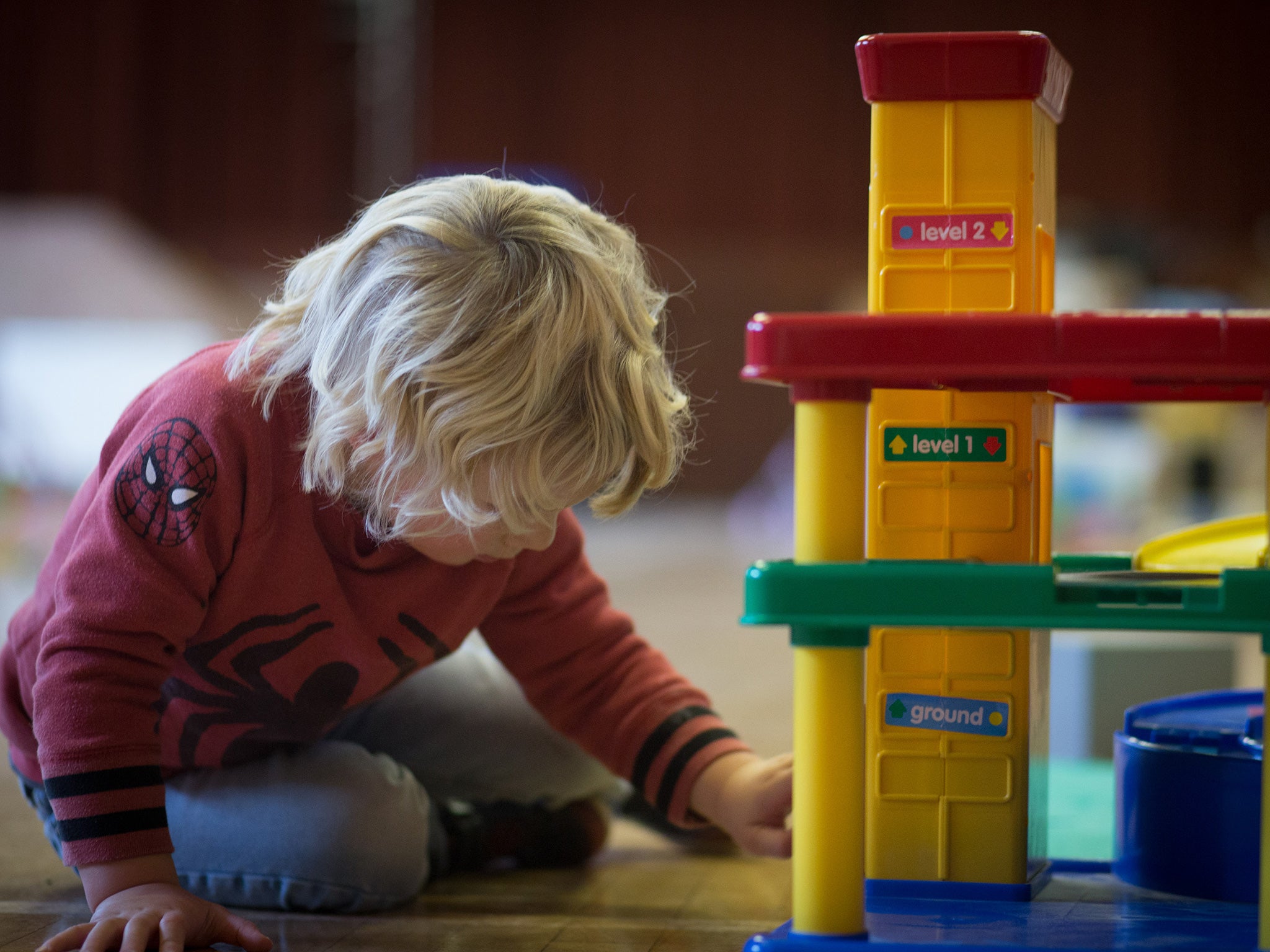Cuts to 'portage' services hit children with learning disabilities
One in five councils have axed the extra help for infants with special educational needs

Your support helps us to tell the story
From reproductive rights to climate change to Big Tech, The Independent is on the ground when the story is developing. Whether it's investigating the financials of Elon Musk's pro-Trump PAC or producing our latest documentary, 'The A Word', which shines a light on the American women fighting for reproductive rights, we know how important it is to parse out the facts from the messaging.
At such a critical moment in US history, we need reporters on the ground. Your donation allows us to keep sending journalists to speak to both sides of the story.
The Independent is trusted by Americans across the entire political spectrum. And unlike many other quality news outlets, we choose not to lock Americans out of our reporting and analysis with paywalls. We believe quality journalism should be available to everyone, paid for by those who can afford it.
Your support makes all the difference.Vital services that help prepare children with learning disabilities for nursery and school have fallen victim to council austerity cuts.
More than one in three councils in England and Wales has cut spending on “portage” services for young children in the past year; one in five no longer has any service at all, according to Freedom of Information (FoI) requests carried out by Mencap.
The charity said that disabled people have been placed “at the sharp end of austerity” and warned that cutting the service was jeopardising the life chances of children and “storing up costs for society”.
Portage visitors work with preschool children with special educational needs in their own homes, helping them develop learning techniques and improve communication. A survey of parents, carried out by Mencap, found that 81 per cent considered the service “invaluable”.
However, with councils facing unprecedented financial pressure in the wake of government cuts, the service is being rolled back in many areas. Mencap found 37 per cent of councils cut spending on the service last year and another 21 per cent are proposing reductions in the coming year.
The cutbacks were depriving children with learning disabilities of “the best possible start in life”, said Jan Tregelles, Mencap’s chief executive, who added: “People with a learning disability and their families are too often at the sharp end of austerity”.
The National Audit Office estimates government funding for councils, which pay for portage services, will by 2016 have fallen by 37 per cent since 2010.
David Simmonds, chair of the Local Government Association’s children and young people board, said portage spending would normally vary each year. “In a climate of 40 per cent cuts since 2010, sometimes they [councils] have to make tough decisions about how money will be spent,” he said.
One in four parents surveyed by Mencap reported cuts to portage services in their area affecting both home visits and group sessions. Five local authorities – three in Yorkshire and Humber, one in the West Midlands and one in the South-west – have cut portage services completely in the past five years.
The National Portage Association said it was “increasingly concerned” by reports of closures and redundancies.
A government spokesperson said: “We have highlighted the importance of portage to local authorities but it is up to them to decide what services to commission… To help make sure children and young people with special educational needs and disability get the support they need, we have invested £30m in Independent Supporters to ensure every family that needs help with an education, health and care plan gets it.
“Councils should be protecting front-line services as well as keeping council tax down. There is far more scope for savings across the public sector by merging back offices, more joint working, cutting fraud and embracing transparency to drive out waste and inefficiency.”
Join our commenting forum
Join thought-provoking conversations, follow other Independent readers and see their replies
Comments